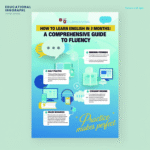Negotiating salary during an interview can be a pivotal moment in securing a job offer that aligns with professional goals and financial needs. Mastering this skill requires preparation, confidence, and strategic communication. We aim to provide a comprehensive guide to help navigate this critical conversation with poise and effectiveness, ensuring a fair compensation package that reflects skills, experience, and market value. This article delves into every aspect of Negotiate Salary , from preparation to post-interview follow-up, offering actionable strategies to achieve success.
- Why Salary Negotiation Matters
- Preparing for Salary Negotiation
- Research Industry Standards
- Assess Personal Value
- Understand the Full Compensation Package
- Practice Negotiation Scenarios
- Timing the Salary Discussion
- Crafting a Salary Negotiation Strategy
- Set a Salary Range
- Use the Anchoring Technique
- Highlight Value, Not Need
- Be Flexible and Open to Negotiation
- Handling Common Salary Negotiation Scenarios
- Scenario 1: Employer Asks for Salary Expectations Early
- Scenario 2: Offer Below Expectations
- Scenario 3: Employer Claims Budget Constraints
- Scenario 4: Employer Requests Salary History
- Mastering Negotiation Communication
- Use Confident Body Language
- Be Clear and Concise
- Practice Active Listening
- Stay Positive and Collaborative
- Post-Negotiation Steps
- Common Mistakes to Avoid in Salary Negotiation
- Accepting the First Offer Immediately
- Overemphasizing Personal Needs
- Failing to Research
- Being Overly Aggressive
- Ignoring Non-Salary Benefits
- Tailoring Negotiation to Different Industries
- Cultural and Regional Considerations
- Leveraging Technology in Salary Negotiation
- Long-Term Benefits of Effective Salary Negotiation
- Recommendations and Suggestions
- Frequently Asked Questions (FAQs)
Why Salary Negotiation Matters
Securing a competitive salary during an interview sets the foundation for financial stability and career satisfaction. A well-negotiated salary not only reflects the value brought to an employer but also impacts long-term earnings, benefits, and workplace morale. Many candidates hesitate to negotiate, fearing it may jeopardize the job offer. However, employers often expect negotiation, and approaching it professionally can demonstrate confidence and assertiveness—qualities valued in any role.
Negotiation is not just about the base salary. It encompasses bonuses, benefits, vacation time, remote work options, and other perks that contribute to overall job satisfaction. Understanding the full scope of a compensation package ensures informed decisions that align with personal and professional priorities.
Preparing for Salary Negotiation
Preparation is the cornerstone of successful salary negotiation during an interview. Without thorough research and a clear strategy, candidates risk undervaluing themselves or appearing unprepared. Below, we outline key steps to prepare effectively.
Research Industry Standards
Before entering any salary negotiation, research the industry standards for the role, location, and experience level. Use reliable sources such as:
-
Glassdoor: Provides salary ranges based on job title, company, and location.
-
PayScale: Offers detailed reports on compensation trends across industries.
-
LinkedIn Salary: Aggregates data from professionals in similar roles.
-
Bureau of Labor Statistics: Supplies national and regional wage data for various occupations.
For example, a software engineer in San Francisco may command a salary range of $120,000–$180,000 annually, depending on experience and company size. Compare these figures with local cost-of-living data to ensure the salary supports lifestyle needs.
Assess Personal Value
Evaluate skills, experience, and unique qualifications to determine market worth. Consider:
-
Years of Experience: More experience typically justifies a higher salary.
-
Specialized Skills: Expertise in niche areas (e.g., AI, cybersecurity) increases value.
-
Certifications and Education: Relevant degrees or certifications enhance credibility.
-
Achievements: Quantifiable accomplishments, such as increasing revenue or streamlining processes, strengthen negotiation leverage.
Create a list of accomplishments that demonstrate impact. For instance, “Implemented a new CRM system that increased sales efficiency by 20%” showcases tangible value.
Understand the Full Compensation Package
Salary is only one component of a job offer. A comprehensive compensation package may include:
-
Bonuses: Performance-based, signing, or retention bonuses.
-
Benefits: Health insurance, dental, vision, and wellness programs.
-
Retirement Plans: 401(k) matching or pension contributions.
-
Equity: Stock options or restricted stock units (RSUs).
-
Perks: Flexible work hours, remote work options, or professional development stipends.
Research typical benefits for the industry and role to ensure all aspects are considered during negotiation.
Practice Negotiation Scenarios
Simulate the negotiation conversation with a trusted friend or mentor. Practice responding to common employer questions, such as:
-
“What are your salary expectations?”
-
“Can you justify your requested salary?”
-
“We’re offering [amount]. Is that acceptable?”
Rehearsing responses builds confidence and helps articulate value clearly. Record practice sessions to refine tone, pacing, and body language.
Timing the Salary Discussion
Timing is critical in salary negotiation during an interview. Bringing up compensation too early can signal a focus on money over the role, while waiting too long may limit leverage. Follow these guidelines to choose the right moment.
Wait for the Right Moment
Avoid initiating salary discussions in the first interview unless the employer raises the topic. Early interviews focus on qualifications and fit. Typically, salary conversations occur:
-
After a Job Offer: Most employers present a formal offer before expecting negotiation.
-
During Later Interviews: If prompted, provide a salary range after discussing role responsibilities.
-
When Asked Directly: If the interviewer asks about salary expectations, be prepared to respond strategically.
Gauge Employer Interest
Ensure the employer is enthusiastic about hiring before discussing salary. Signs of interest include:
-
Detailed discussions about role responsibilities.
-
Questions about long-term career goals.
-
Invitations to meet team members or tour the workplace.
Strong employer interest increases negotiation leverage, as they are more likely to accommodate reasonable requests.
Crafting a Salary Negotiation Strategy
A well-defined strategy ensures confidence and clarity during salary negotiation. Below, we outline key tactics to approach the conversation professionally.
Set a Salary Range
Based on research, establish a salary range with:
-
Minimum Acceptable Salary: The lowest amount that meets financial needs.
-
Target Salary: The ideal amount based on market value and qualifications.
-
Stretch Goal: A slightly higher amount to aim for during negotiation.
For example, if research indicates a salary range of $80,000–$100,000, set a minimum of $80,000, a target of $90,000, and a stretch goal of $100,000. Present the target or stretch goal first, allowing room for negotiation.
Use the Anchoring Technique
The anchoring technique involves stating a higher salary expectation first to set the tone for negotiation. For instance, if the target salary is $90,000, mention a range of $90,000–$100,000. This positions the higher end as the starting point, making the target salary seem reasonable by comparison.
Highlight Value, Not Need
Focus on the value brought to the role rather than personal financial needs. Statements like “I need a higher salary to cover my expenses” weaken the position. Instead, say:
-
“Based on my experience leading projects that increased revenue by 15%, I believe a salary in the range of $90,000–$100,000 reflects my contributions.”
-
“My expertise in [specific skill] aligns with the role’s requirements, supporting a compensation package of [target salary].”
Be Flexible and Open to Negotiation
Show willingness to discuss non-salary components if the employer cannot meet the target salary. For example:
-
Request additional vacation days or remote work flexibility.
-
Negotiate a signing bonus or performance-based incentives.
-
Ask for professional development opportunities, such as conference funding.
Flexibility demonstrates collaboration and increases the likelihood of a favorable outcome.
Handling Common Salary Negotiation Scenarios
During salary negotiation during an interview, employers may present various responses. Below, we address common scenarios and how to respond effectively.
Scenario 1: Employer Asks for Salary Expectations Early
If asked about salary expectations in the first interview, deflect politely to gather more information:
-
“I’d like to learn more about the role’s responsibilities and the overall compensation package before discussing salary. Could you share the budgeted range for this position?”
This response keeps the conversation focused on the role while signaling preparedness.
Scenario 2: Offer Below Expectations
If the offer is below the target salary, respond tactfully:
-
“Thank you for the offer of $75,000. Based on my research and experience, I was expecting a salary in the range of $90,000–$100,000. Can we explore options to align the compensation with industry standards?”
This approach acknowledges the offer while proposing a higher range.
Scenario 3: Employer Claims Budget Constraints
If the employer cites budget limitations, pivot to non-salary benefits:
-
“I understand budget constraints. Could we discuss additional benefits, such as a signing bonus, extra vacation days, or professional development opportunities, to bridge the gap?”
This shows flexibility while maintaining the goal of a competitive package.
Scenario 4: Employer Requests Salary History
Some employers may ask for salary history, though this practice is banned in certain regions. If permissible, avoid sharing exact figures to prevent anchoring the offer to past earnings. Instead, say:
-
“My previous compensation was competitive for that role, but I’m focused on finding a package that reflects the value I’ll bring to this position. Based on market research, I’m seeking a range of $90,000–$100,000.”
If pressed, redirect to future expectations rather than past salaries.
Mastering Negotiation Communication
Effective communication during salary negotiation enhances professionalism and persuasiveness. Below, we outline key communication strategies.
Use Confident Body Language
Non-verbal cues reinforce confidence. During in-person or video interviews:
-
Maintain eye contact to convey assurance.
-
Sit upright to project professionalism.
-
Avoid fidgeting to demonstrate composure.
Be Clear and Concise
Articulate salary expectations clearly, avoiding vague or hesitant language. For example:
-
Weak: “I was kind of hoping for something around $80,000, but I’m flexible.”
-
Strong: “Based on my research and experience, I’m seeking a salary in the range of $85,000–$95,000.”
Practice Active Listening
Listen carefully to the employer’s response to understand their position. Reflect their points to show engagement:
-
“I hear that the budget for this role is $80,000. Given my expertise in [skill], could we explore a range closer to $90,000 or discuss additional benefits?”
Stay Positive and Collaborative
Maintain a positive tone, even if the offer is disappointing. Avoid confrontational language and frame the conversation as a partnership:
-
“I’m excited about the opportunity to contribute to [company]. Let’s work together to find a compensation package that reflects my skills and aligns with your budget.”
Post-Negotiation Steps
After negotiating salary during an interview, follow-up actions solidify the agreement and maintain professionalism.
Request the Offer in Writing
Once an agreement is reached, request a written offer detailing:
-
Base salary.
-
Bonuses and incentives.
-
Benefits and perks.
-
Start date and other terms.
Review the offer carefully to ensure it matches the discussed terms.
Evaluate the Offer Holistically
Consider the entire compensation package, not just the salary. Use a weighted scoring system to assess:
-
Financial Components (50%): Salary, bonuses, equity.
-
Benefits (30%): Health insurance, retirement contributions, vacation time.
-
Work-Life Balance (20%): Remote work options, flexibility, company culture.
If the offer falls short, counter with a polite, evidence-based response.
Follow Up Professionally
Send a thank-you email after the negotiation, reiterating enthusiasm for the role:
Subject: Thank You for the Opportunity
Dear [Interviewer’s Name],
Thank you for discussing the [Job Title] position and the compensation package. I’m excited about the opportunity to contribute to [Company Name] and appreciate your consideration of my salary expectations. Please let me know if there’s anything further you need from me.
Best regards,
[Your Name]
This reinforces professionalism and keeps communication open.
Common Mistakes to Avoid in Salary Negotiation
Even prepared candidates can make missteps during salary negotiation. Below, we highlight pitfalls to avoid.
Accepting the First Offer Immediately
Accepting the first offer without negotiation may leave money on the table. Most employers build room for negotiation into their initial offer. Politely counter with a higher range based on research.
Overemphasizing Personal Needs
Focusing on personal financial needs (e.g., rent, loans) weakens the case. Instead, emphasize the value delivered to the employer.
Failing to Research
Entering a negotiation without market data risks undervaluing or overpricing oneself. Always back requests with industry benchmarks.
Being Overly Aggressive
Aggressive or ultimatum-based approaches can alienate employers. Maintain a collaborative tone to preserve the relationship.
Ignoring Non-Salary Benefits
Focusing solely on salary overlooks other valuable components. A lower salary with robust benefits may outweigh a higher salary with minimal perks.
Tailoring Negotiation to Different Industries
Salary negotiation strategies vary by industry due to differing compensation structures and expectations. Below, we explore approaches for key sectors.
Tech Industry
The tech industry often offers high salaries, equity, and perks. Key considerations:
-
Equity Negotiation: Request clarity on stock options or RSUs, including vesting schedules.
-
Bonuses: Tech roles often include performance or signing bonuses.
-
Remote Work: Many tech companies offer flexible work arrangements.
For example, a data scientist negotiating with a tech startup might prioritize equity over base salary for long-term financial gain.
Finance Industry
Finance roles emphasize bonuses and commissions. Focus on:
-
Performance Bonuses: Negotiate clear metrics for earning bonuses.
-
Benefits: High-value health plans and retirement contributions are common.
-
Career Path: Discuss opportunities for rapid advancement, as finance roles often tie compensation to promotions.
Healthcare Industry
Healthcare salaries are often standardized, but negotiation is still possible:
-
Shift Differentials: Negotiate higher pay for night or weekend shifts.
-
Continuing Education: Request funding for certifications or advanced training.
-
Work-Life Balance: Seek flexible schedules or additional paid time off.
Non-Profit Sector
Non-profits may have limited budgets but offer other benefits:
-
Mission Alignment: Emphasize passion for the organization’s cause to build rapport.
-
Flexible Benefits: Negotiate remote work, flexible hours, or additional vacation time.
-
Professional Development: Request stipends for conferences or training.
Cultural and Regional Considerations
Negotiation norms vary by culture and region, impacting salary negotiation during an interview. Below, we outline key differences.
United States
In the U.S., negotiation is expected and viewed as a sign of confidence. Be direct but polite, and back requests with data.
Europe
European employers may have less flexible salary ranges due to standardized pay scales. Focus on benefits like vacation time or pension contributions.
Asia
In some Asian cultures, direct negotiation may be seen as confrontational. Use subtle language and emphasize mutual benefit.
Remote and Global Roles
For remote or global roles, consider:
-
Cost of Living: Adjust expectations based on the employee’s location, not the company’s.
-
Currency Fluctuations: Clarify whether salary is paid in local currency or USD.
-
Tax Implications: Research tax obligations for remote work across borders.
Leveraging Technology in Salary Negotiation
Technology can enhance preparation and execution of salary negotiation. Use these tools to gain an edge:
-
Salary Calculators: Tools like PayScale and Glassdoor provide real-time salary data.
-
Negotiation Apps: Apps like Salary.com offer scripts and strategies.
-
LinkedIn: Connect with professionals in similar roles to gather insights.
-
AI Tools: Platforms like ChatGPT can simulate negotiation scenarios for practice.
Long-Term Benefits of Effective Salary Negotiation
Successful salary negotiation during an interview has lasting impacts:
-
Higher Lifetime Earnings: A $10,000 increase in starting salary compounds over time.
-
Career Confidence: Negotiating successfully builds assertiveness for future discussions.
-
Workplace Respect: Demonstrating negotiation skills earns respect from employers and colleagues.
Recommendations and Suggestions
To excel in salary negotiation during an interview, follow these recommendations:
-
Invest in Research: Spend at least 2–3 hours researching industry salaries and benefits.
-
Practice Regularly: Rehearse negotiation scenarios weekly to build confidence.
-
Seek Feedback: After interviews, ask mentors or peers to review negotiation performance.
-
Stay Updated: Monitor industry trends to ensure salary expectations remain competitive.
-
Document Achievements: Maintain a record of accomplishments to justify salary requests.
Frequently Asked Questions (FAQs)
-
When should I bring up salary during an interview?
Wait until the employer shows strong interest or presents an offer, typically in later interviews. -
How do I research a fair salary for my role?
Use platforms like Glassdoor, PayScale, and LinkedIn Salary to find industry and location-specific data. -
What if the employer asks for my salary expectations early?
Deflect politely by asking about the role’s responsibilities or budgeted salary range. -
Can I negotiate if I have little experience?
Yes, focus on transferable skills, enthusiasm, and market research to justify your request. -
What if the offer is below my expectations?
Politely counter with a higher range, citing research and your value to the role. -
Should I share my salary history?
Avoid sharing past salaries; focus on future expectations based on market standards. -
How do I negotiate non-salary benefits?
Request additional vacation days, remote work options, or professional development funding. -
What if the employer says the budget is fixed?
Explore non-monetary benefits like flexible hours or bonuses to enhance the package. -
How do I handle a lowball offer?
Acknowledge the offer and counter with a data-backed range that reflects your value. -
Can I negotiate after accepting an offer?
It’s challenging but possible if new information (e.g., another offer) strengthens your case. -
How do I negotiate in a competitive job market?
Emphasize unique skills and flexibility to stand out while aligning with market rates. -
What if I’m nervous about negotiating?
Practice with a mentor and focus on your preparation to build confidence. -
How do I negotiate for a remote role?
Consider cost-of-living differences and clarify currency and tax implications. -
What if the employer refuses to negotiate?
Evaluate the offer holistically and decide if non-salary benefits make it worthwhile. -
How do I follow up after negotiating?
Send a thank-you email and request the final offer in writing to confirm terms.






















